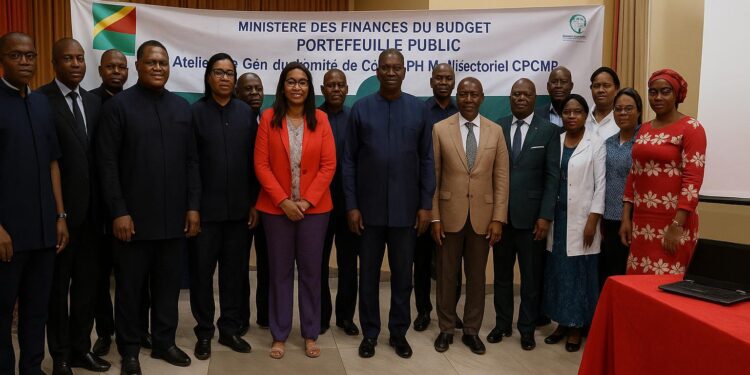Procurement Data Under the Spotlight
On 12 September in Brazzaville, the Director-General for Public Procurement Control, Joel Ikama Ngatse, opened a technical workshop tasked with reviewing and validating Congo’s first consolidated report on national procurement data.
Technical Scrutiny in Brazzaville
The three-day session gathers around thirty officials and analysts from the Directorate to scrutinise the findings of a year-long data collection drive conducted between July 2024 and July 2025 under the Programme for Accelerating Institutional Governance and Reforms.
Known by its French acronym Pagir, the programme is financed through a results-based partnership between the Congolese government and the World Bank Group, with a development goal of boosting the efficiency of domestic revenue mobilisation and public spending, especially in health and education.
Transparency as Fiscal Cornerstone
Procurement sits at the heart of that ambition because it channels substantial fiscal resources toward infrastructure and social services; reliable, timely data are therefore considered indispensable for transparency, cost control and value-for-money assessments.
Addressing participants, Ikama Ngatse recalled the series of fiscal-governance reforms launched by the cabinet with multilateral support, emphasising that “transparency, efficiency and accountability in managing public resources” remain the pillars of the current modernisation agenda.
Mining Archives for Reliable Metrics
He explained that the exercise mined archival files held by his directorate and solicited inputs from line ministries acting as contracting authorities, together with delegated project owners who play a pivotal role in procurement workflows.
By compiling, centralising and cleaning these datasets, the team hopes to shorten processing times, standardise documentation and gradually build a system capable of publishing near-real-time statistics on contract values, suppliers, competition levels and execution milestones.
Validating the Draft Report
The workshop’s immediate mandate is to present the draft technical report, gather comments, incorporate amendments and obtain collective sign-off, thereby ensuring that the final document reflects the consensus of operational staff who will use the information daily.
Rewriting the Procurement Code
Reform of Congo’s procurement code already introduced revised financial thresholds, new planning tools, streamlined procedures and stronger ex-ante as well as ex-post controls; data availability is expected to make those innovations measurable and enforceable.
Testing Data Consistency
Participants are reviewing how each innovation has been captured in the database, checking consistency across regions and sectors, and identifying gaps where additional metadata or field explanations may be required before the platform can be considered publication-ready.
According to facilitators, the dataset covers all contracts awarded at the national level during the reference period, including tenders financed by the state budget and those supported by external partners, thereby offering a panoramic snapshot of procurement practices.
Thresholds Shape Competition
Particular attention is given to contract award thresholds, since they determine whether competitive bidding, restricted consultation or direct negotiation is permissible; aligning recorded thresholds with the updated code is viewed as essential for credible oversight.
Planning Tools and Timelines
Another focal point involves the new planning instruments that oblige contracting authorities to disclose annual procurement plans; analysts are verifying how many entities submitted plans on schedule and whether subsequent awards adhered to the published timelines and budgets.
Gauging Early Efficiency Gains
Discussions also cover the streamlined procedures designed to cut red tape; early evidence in the database suggests that certain approval stages have already been trimmed, yet experts are debating how best to quantify the time and cost savings.
Controls Anchor Accountability
Enhanced control mechanisms, including the Directorate’s own ex-post audits, are being cross-referenced with the contract records; discrepancies flagged during audits should in future automatically trigger alerts within the data system, a feature still under development.
From Workshop to Implementation
Once validated, the report will be submitted to the steering committee of Pagir and to relevant ministries, serving as a baseline against which future progress can be measured when the next data cycle is launched.
For Ikama Ngatse, the ultimate test will be whether citizens and investors alike perceive a clearer, faster and fairer procurement environment; the current workshop marks an incremental but concrete step toward that objective.












































